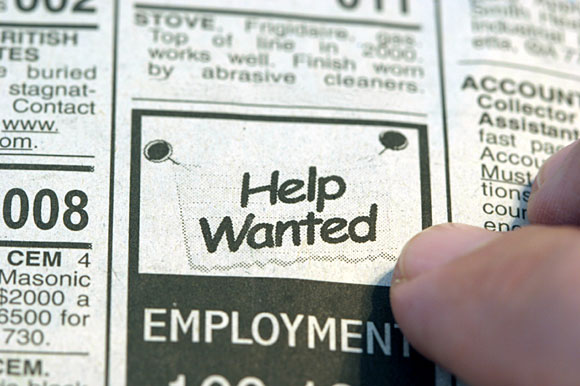Surprise! Increasing number of employees changing jobs due to opportunity, not necessity
Unemployment has stubbornly held above 9% this year, but surprisingly, those with jobs increasingly are looking for greener pastures.
In a July telephone survey of about 1,000 working adults, 22% said they changed jobs in the last year — but layoffs or firings weren't behind most of the moves. Nearly half, or 44%, said they proactively sought a “new opportunity,” according to the survey
That's a big increase from last year, according to SnagAJob.com Inc., the hourly-job recruiter that commissioned the survey. Snagajob's members seem to be heavily weighted toward college students and other part-timers in search of fast-food and other hourly jobs, but its survey is of a random cross-sample of the employed. In 2010, 18% of workers said they changed jobs, with just under a third of them doing it to find better work.
“This proactive movement in the job market is certainly not an immediate solace to the unemployed, but it's encouraging to see some opportunities for workers,” Shawn Boyer, chief executive of Snagajob, said in a press release. “The fact that more workers are looking for — and finding — new positions proactively shows that some employers are indeed hiring aggressively and that opportunity is available for attractive candidates.”
In the survey last month, 22% said a layoff or firing was behind the job move, down from 34% who cited that reason last year.
Alex Jakobson, managing director at global management consulting firm RogenSi IP Ltd., said he saw a similar sentiment in a recently completed survey of 1,200 workers conducted by his company to get a read on employee resilience.
“We have seen a higher number of those who are thinking about leaving their position, particularly among director-level employees,” than in earlier surveys, Mr. Jakobson said. “Perhaps they see more prospects in the marketplace or feel undervalued.”
An increase in job hunting isn't a surprise, he said. “During the credit crisis, people were motivated by fear of losing their job, whereas now we are finding that people are more motivated by whether the organization is creating a good environment.”
For director and unit-leader-level employees, lower bonuses and increased hours over the last couple of years may have spurred them to look around for a better deal, he said.
One reason to hunt for a better job could be that workers are looking for a more secure position in the face of continued economic weakness. More than a third of those surveyed said they believe that the worst is yet to come in the economy, compared with a slight majority at 52% who believe that the economy has stabilized from the recession but has not yet begun to improve. Tellingly, workers were a bit more optimistic last year, when 55% said they saw signs that the economy had stabilized. “That's not good news,” according to Snagajob.







